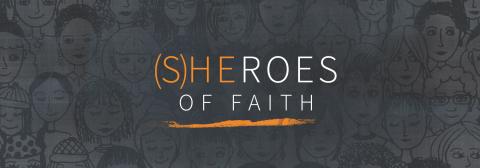
Throughout millenia, women’s voices, spirituality, and leadership have sustained and guided families and communities. Their commitment and witness, woven together through oft-forgotten stories, continue to enrich the fabric of society. In honor of Women’s History Month, we bring you this interfaith collection of stories of everyday women who continue to challenge and inspire this generation and the next.
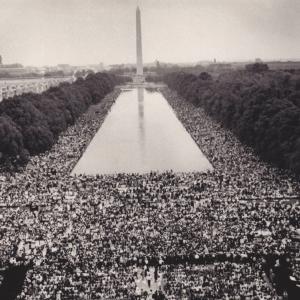
Image via Robert Joyce papers, 1952-1973 / flickr.com
The Bahá'í writings say that human beings are like mines rich in gems of inestimable value and that one of the purposes of this earthly life is to discover our God-given gems, polish them, and bring them out to serve humanity. Today I write about a wonderful woman who has offered her many incredible gems in service.

Christ Healing a Bleeding Woman. Public domain image
Sometimes there are no advocates, no allies, no other choices but to be the one to take a risk with no guarantee or promise of success, of justice, of healing.
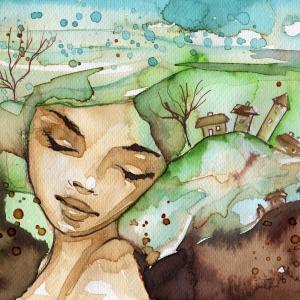
Image via bruniewska/Shutterstock
There are women in my life I choose to breathe with. With these women, I turn our breath into sounds, sounds into words, and raise them together in solidarity across the currents of justice. Together, we fight for the environment, we fight for rights, for black lives, for women's rights — and constantly strive for peace.
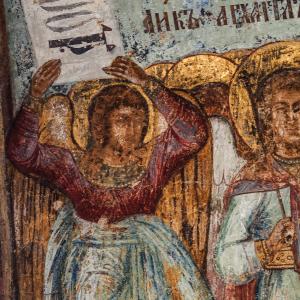
Image via Jenny Rainbow/Shutterstock.com
In 2016, I celebrate 20 years of walking in the footsteps of many women who have paved the way for me to me to become a leader. On this day in Women’s History Month, I write about two women of God who stand out most. You’ll find the name of one in the Bible and the other on my birth certificate.
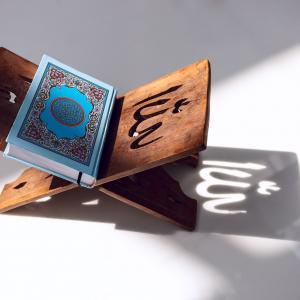
Image via Saida Shigapova / Shutterstock.com
In 2005, Amina Wadud stepped in front of a crowd of one hundred Muslims, women and men, to offer a sermon and lead them in prayer — something previously unheard of for a woman to do. Wadud has been vocal about gender equality in Islam for decades. She is a prominent speaker, writer, and scholar of Islamic studies. But I didn’t know of her until my senior year of college. In my last class as an undergraduate student, I decided to take a class on Islam. I was intrigued by our reading list at the beginning of the semester, but Amina Wadud and her book, Inside the Gender Jihad: Women’s Reform in Islam, were just words on my syllabus.
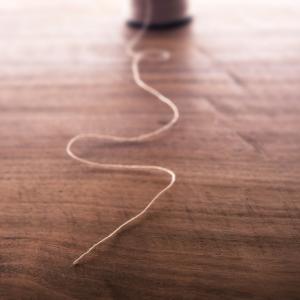
Photo via optimarc / Shutterstock.com
Sometimes it takes a friend to tell you that you’re an idiot. Actually, Anat was kinder than that — in keeping with rabbinic teaching that reproof needs to be done for the benefit of the admonished rather than the admonisher (which is harder than it seems, given the feel-good buzz of self-righteousness).
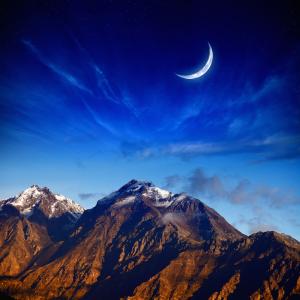
Image via Igor Zh. / Shutterstock.com
It all began for me as a young girl, spending many childhood summers with my aunt — my father’s eldest sister. Her name was Hilal, which means “crescent moon” in Arabic. No name could have been more appropriate for her — just as the spiritual lives of Muslims center on the crescent moons of the lunar calendar, my family’s spiritual center stood upon this strong minded, faithful, and dedicated matriarch.
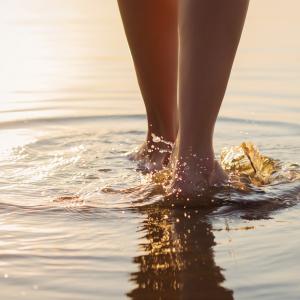
Image via Kaspars Grinvalds / Shutterstock.com
Akko is an ancient city, crusting the northern shore of the Mediterranean. The founder of the Bahá'í faith, Bahá'u'lláh, was exiled here in 1868, a prisoner of the Ottoman Empire. He was banished from his native Persia for declaring a new religion. He also established the absolute equality of women and men.
In the lives of early Bahá'í women, a powerful stance of love and service exists. These women were educators, journalists, mothers, and artists from both privileged and humble backgrounds. But a certain ardor — an eager flame — binds their stories together.

Photo via Markus Gann / Shutterstock.com
“Why did you, American Mother of the Year, commit civil disobedience in front of the Trident nuclear submarine?” a reporter asked the white haired, 78-year-old woman as she left the courthouse.
The woman, accused of being in a little boat blocking a nuclear submarine, answered without a moment’s hesitation.
“I did it for the children of the world,” she said.
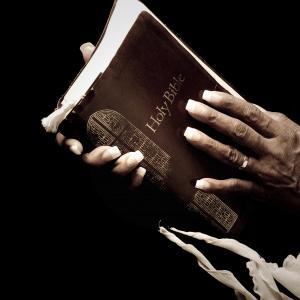
Image via John Wollwerth/Shutterstock.com
I am many things – a feminist theologian, staff member at the Interfaith Youth Core, an active member of a United Methodist Church, an activist, and a mother in a transracial adoptive family. These roles are linked and each informs the other — I try to be accountable to multiple communities and am shaped by a myriad of contexts.
As such, I look up to and learn from women who model interconnected lives, are shaped by the wisdom of many spaces, and work for liberation of both themselves and communities of women.
Mercy Amba Oduyoye , mother of African feminist theology, is one of these inspiring models.

Image via Hrecheniuk Oleksii/Shutterstock.com
The Jewish people were nearing the end of their 40 years wandering through the desert when Moses orchestrated a census to determine how the promised land would be divided among families when they arrived. Mahlah, Noah, Hoglah, Milcah, and Tirzah were five sisters. The fact that they are often referred to as the “daughters of Zelophehad” or the “daughters of Z” reflects the patriarchy of the day (in which, for instance, land was only passed to a male heir). “Z” had died in the desert, and these women of the wilderness advocated for themselves with Moses.